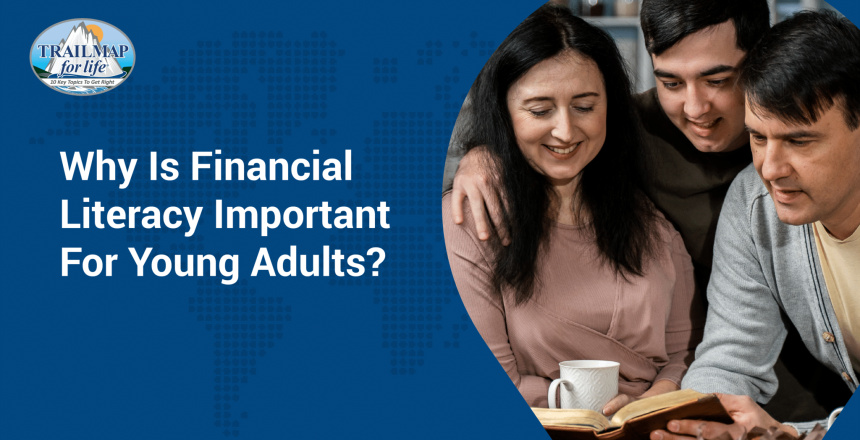You may still be in the prime of your youth, but adulthood is knocking on the door.
Adulthood is bringing with it a new set of responsibilities, especially those tied to finances.
Rent, bills, and family commitments are about to become integral parts of your adulting journey. It’s going to be more hectic than ever. That’s why it’s high time to develop life skills.
But take note: this isn’t meant to scare you — but to open your eyes to what’s inevitable. After all, it is true that being an adult means someone’s going to depend on you one way or another, may it be yourself or loved ones.
However, while the weight of these responsibilities can be hefty, you don’t need to worry that much. This is because the key to overcoming them lies in the gift of financial life skills.
Why’s that?
As long as we’re in this world, money is our medium for value exchange. Yes, there’s more to life than money. But to take care of things beyond money — as in health and relationships — it usually involves trading our money for their growth and maintenance.
Embrace Financial Literacy Early
Remember the quote: “Knowledge is power”?
Well, financial literacy is one form of that power.
See, better knowledge about money leads to better financial decisions. And in turn, better decisions pave the way for a better life.
And so by arming yourself with financial literacy, you can navigate the complexities of adulthood without constantly stressing over money, allowing you to focus on what truly matters.
The Time is Now
As a young adult, you’re still at the “starting line”.
You may not have a lot of money to start with. But what you lack in these resources, you can make up with the luxury of time and energy. This actually helps you a lot more to delve into the intricacies of finance. Seize this opportunity.
What we’re trying to say is: Don’t be discouraged if your funds are currently limited — you could consider it a blessing in disguise.
How’s that?
Mastering finance on a smaller scale sets the stage for handling larger sums effectively in the future. It’s one of the best exercises to make sure you become smarter with greater budgets down the line.
Key Concepts to Master
- Identify Financial Goals and Priorities: Understand what matters most to you and plan accordingly. Are you saving up for a college fund? Or maybe you want to move into a new place? Or on the more “fun” side, saving up for a vacation out of town? Whatever it is, you’d be the one who’s going to choose what matters for you —both in the short term and the long term.
- Master Budgeting: Once you’ve identified your goals and priorities, it’s time to work towards achieving them. Now’s your opportunity to learn how to allocate resources wisely and create a roadmap for your financial journey. How much are you earning? And how are you going to split that salary to take care of your present (needs and wants) and future? A good place to start is 50% needs; 30% wants; and 20% savings, but you can always tweak it to suit your situation.
- Be Smart with Debt and Credit Cards: To be completely honest, this is a relatively complex financial concept. So it might be best to avoid going down this rabbit hole as the negative outcomes could be too much to handle. But the main point here is to, be smart in managing debt and credit cards to avoid financial pitfalls.
Why And Where to Invest
Know where to invest your time and money wisely, especially your time during this period of your life. It’s in your best interest to fully be intentional with whatever you’re spending your time with. If scheduling something isn’t contributing to your overall well-being, then it might be a good idea to consider.
After all, time is currently one of your most valuable resources — and you can’t “earn” it back unlike money. Use this time to invest in yourself — like learning profitable skills, working out, or whatever you think would help you become a better person.
How To Protect Yourself Now and In The Future
Prioritize emergency funds for short-term security. This is a fund you set aside worth 3-12 months of your monthly expenses. It acts as an easy-access cushion that’s going to save you in case of — you guessed it — emergencies.
On top of that, you could also explore insurance options for long-term protection. There’s already a lot of providers out there, you just need to find a great deal from a reputable company to make sure you’re covered as best as possible.
The bottom line is that safeguarding yourself and your loved ones is of prime importance in the unpredictable journey of life.
Unlock Financial Freedom
By mastering these key financial life skills and concepts, you will not only optimize your current financial situation but also set yourself on the path to achieving the coveted financial freedom many dream about.
So, dive into the world of life skills and financial literacy now, and empower yourself for a brighter, stress-free future.






